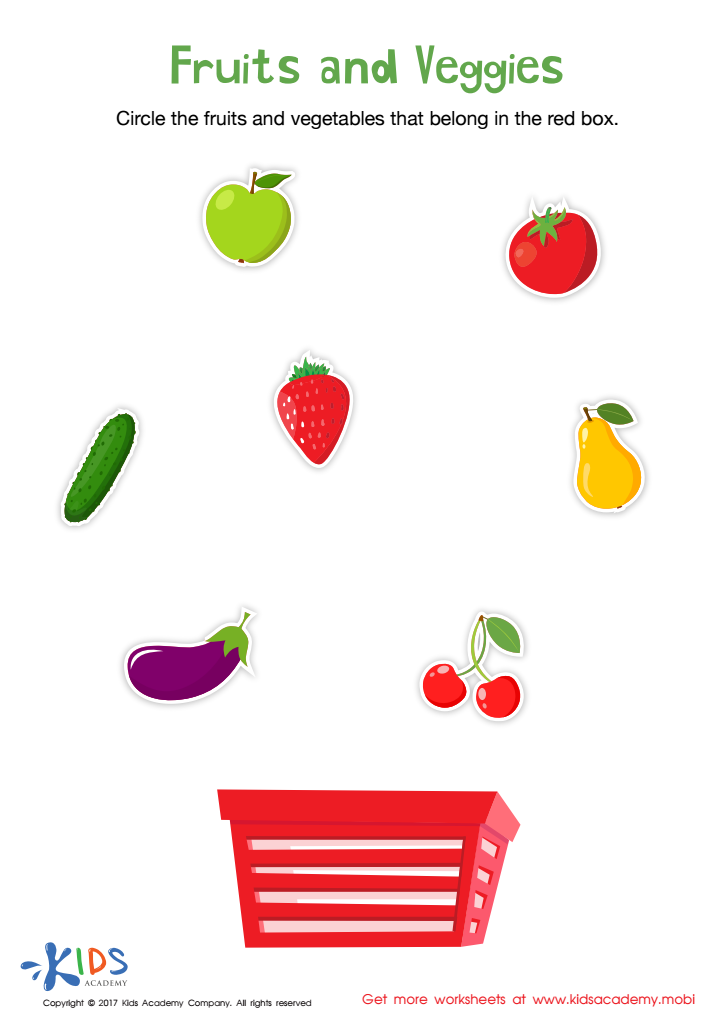Sorting skills Normal Math Worksheets for Ages 5-6
7 filtered results
-
From - To
Discover engaging and interactive sorting skills math worksheets designed for children aged 5-6 on our website. These worksheets focus on developing essential sorting and categorization skills through fun activities that keep young learners motivated. With a variety of colorful images and themes, kids will enjoy sorting objects by shape, color, and size while enhancing their critical thinking skills. Perfect for at-home learning or classroom use, our worksheets provide a valuable resource for early education. Help your little ones master sorting skills in an enjoyable way, laying a strong foundation for future math concepts. Visit our page to explore now!
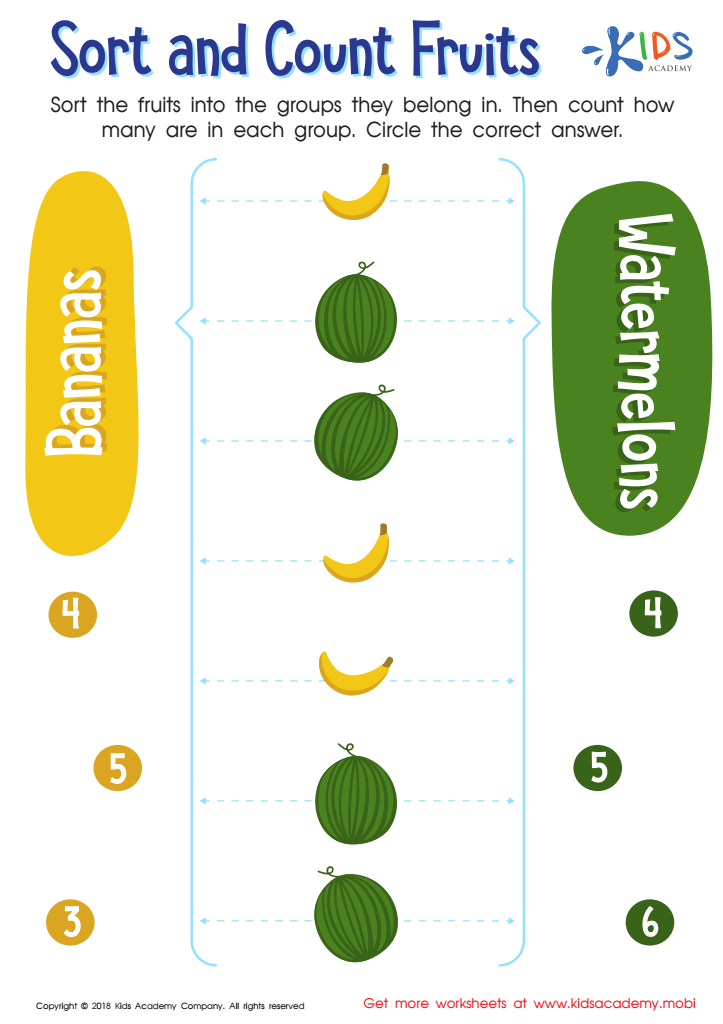

Sort and Count Fruits Worksheet


Sort and Count to the Moon Worksheet
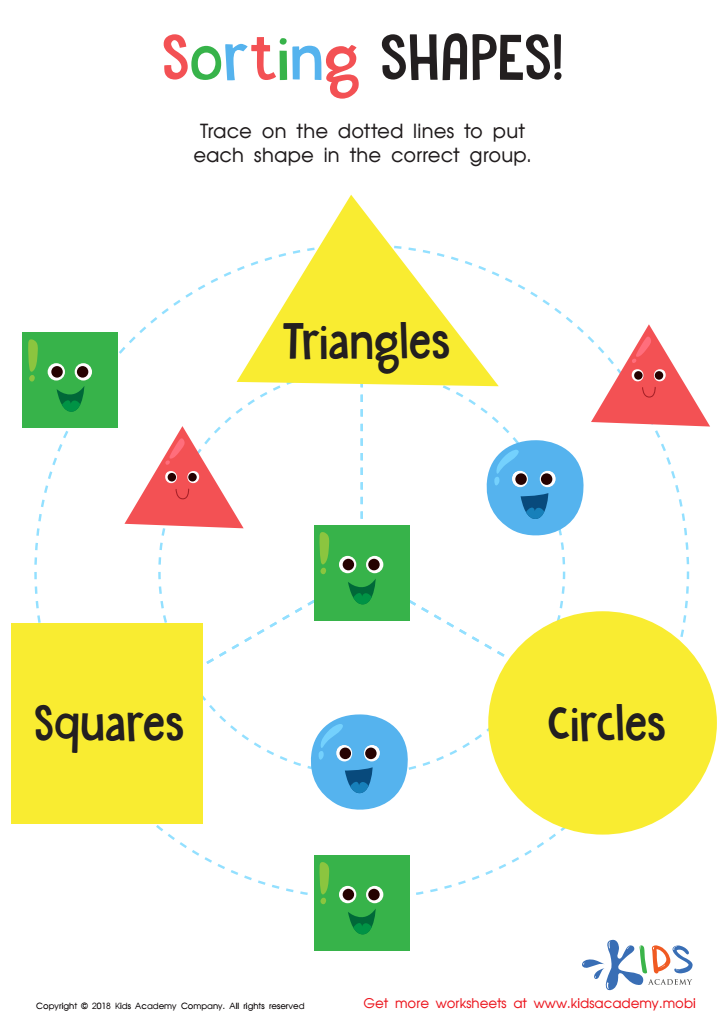

Sorting Shapes - Part 3 Worksheet
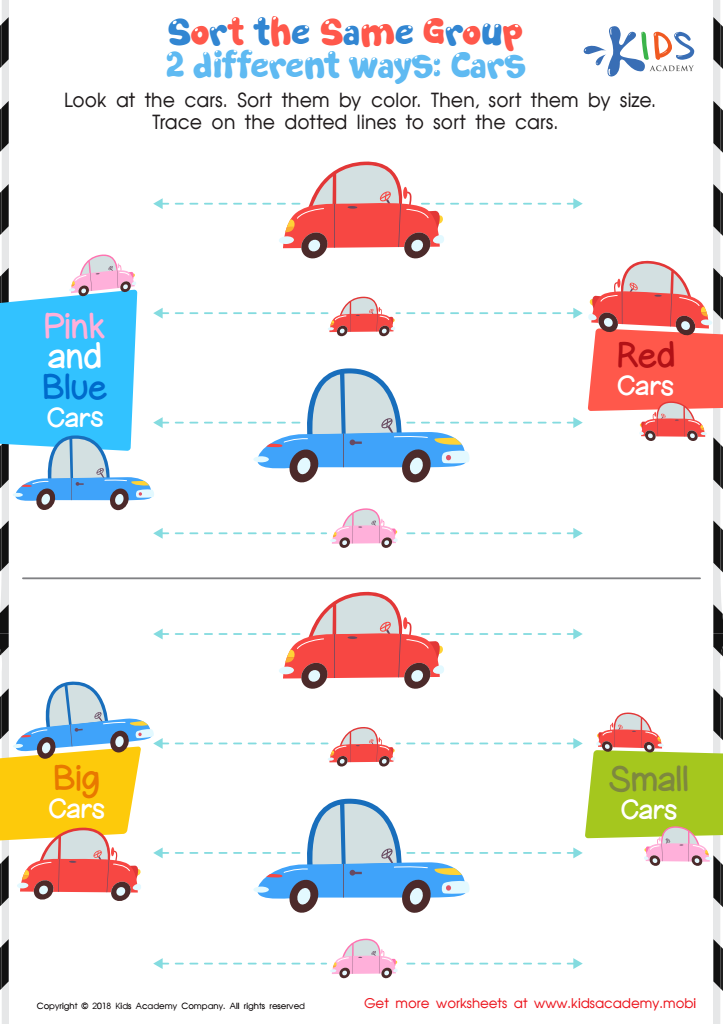

Sort the Same Group 2 Different Ways: Cars Worksheet
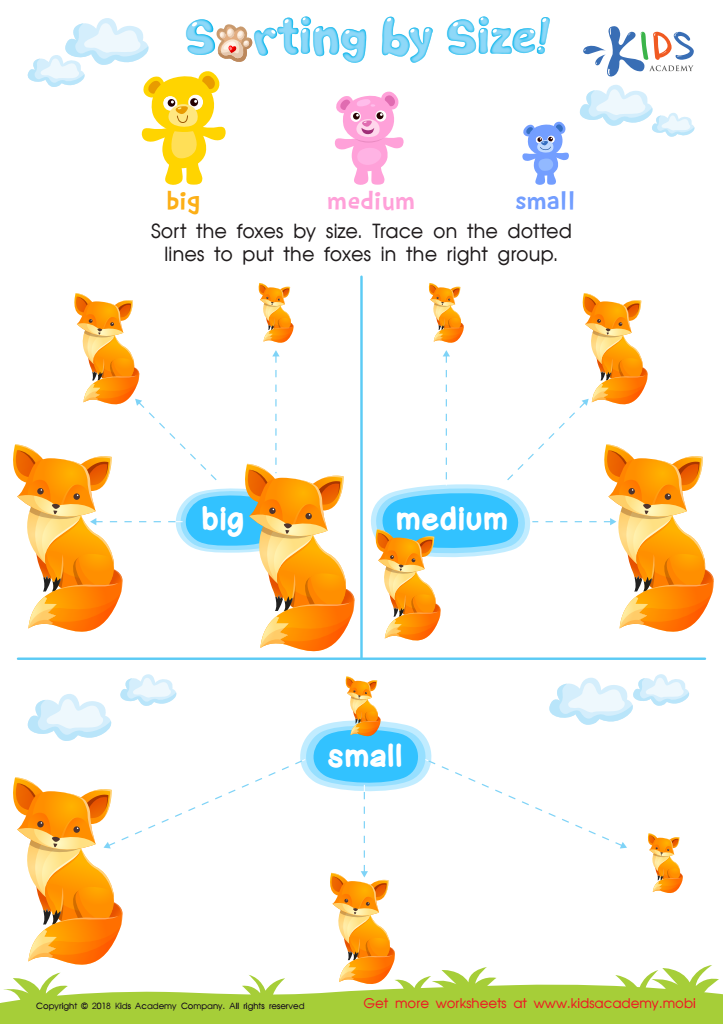

Sorting by Size Worksheet
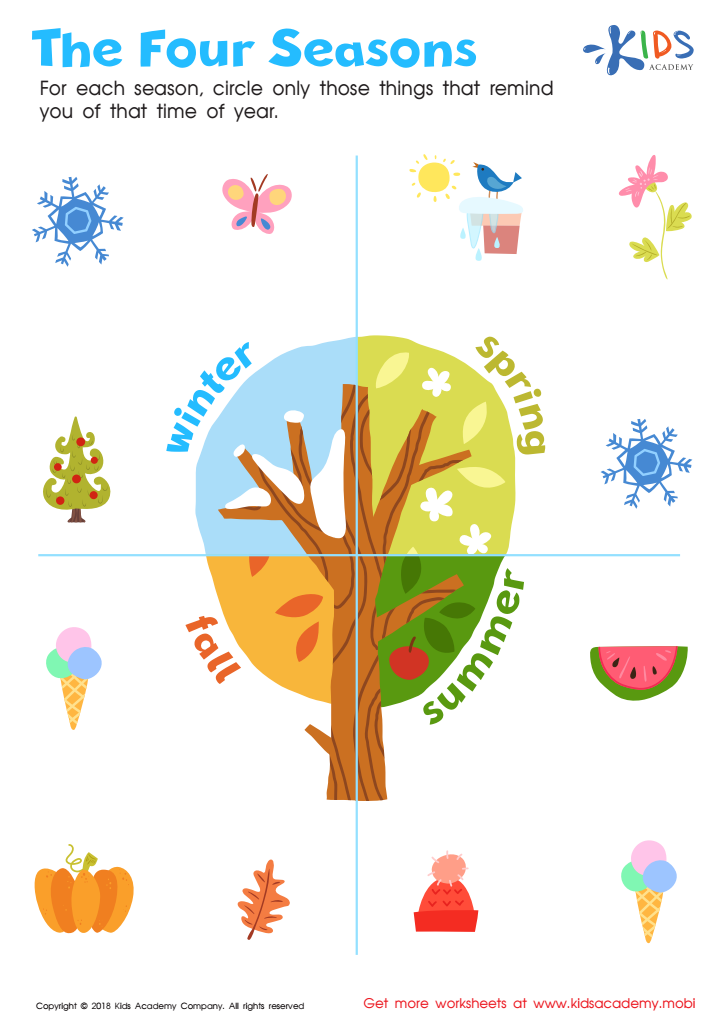

The Four Seasons Worksheet
Sorting skills are fundamental for children aged 5-6 as they lay the groundwork for essential math concepts and critical thinking. Teaching sorting involves categorizing objects based on attributes such as size, shape, color, or other characteristics, which enhances cognitive development. When children sort, they practice observational skills and learn to recognize similarities and differences, fostering their ability to classify information.
From a mathematical perspective, sorting serves as an introduction to crucial skills such as counting, pattern recognition, and categorization—specific prerequisites for future mathematical learning. Understanding how to classify objects aids in developing number sense and prepares students for more complex operations like addition and subtraction.
Moreover, sorting activities promote meaningful engagement through play, which is essential at this age. When parents and teachers encourage sorting games or activities, they enhance social skills by fostering cooperation and communication, as children often work together during these learning experiences.
Finally, sorting instills a sense of order and organization, skills that benefit children not only in mathematics but throughout their educational journey and daily life. By prioritizing sorting education, parents and teachers can empower children with tools for successful learning and problem-solving in the future.
 Assign to My Students
Assign to My Students

